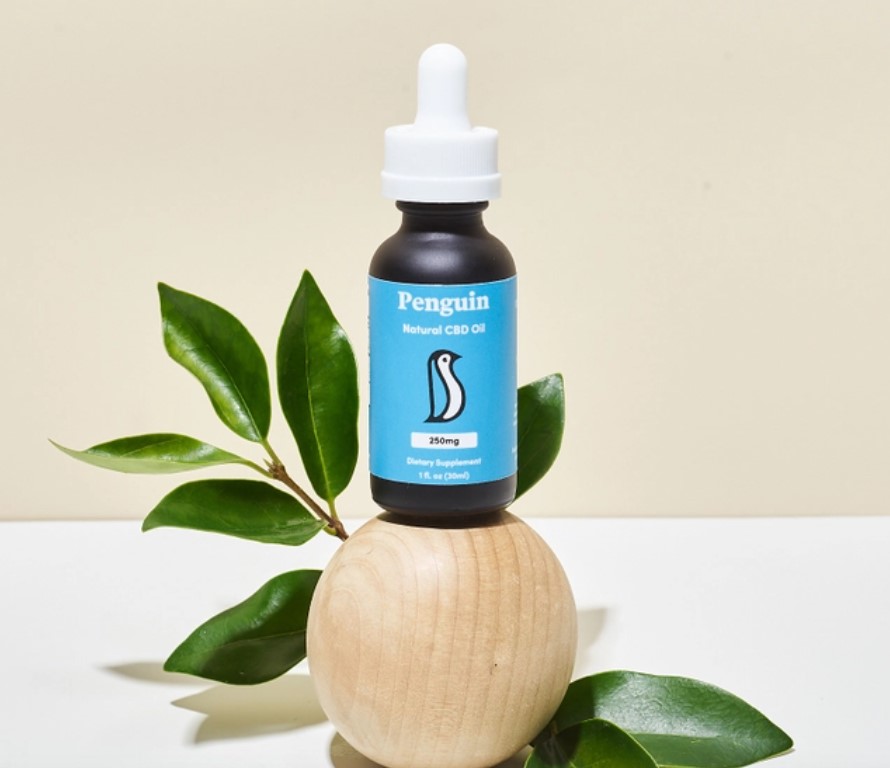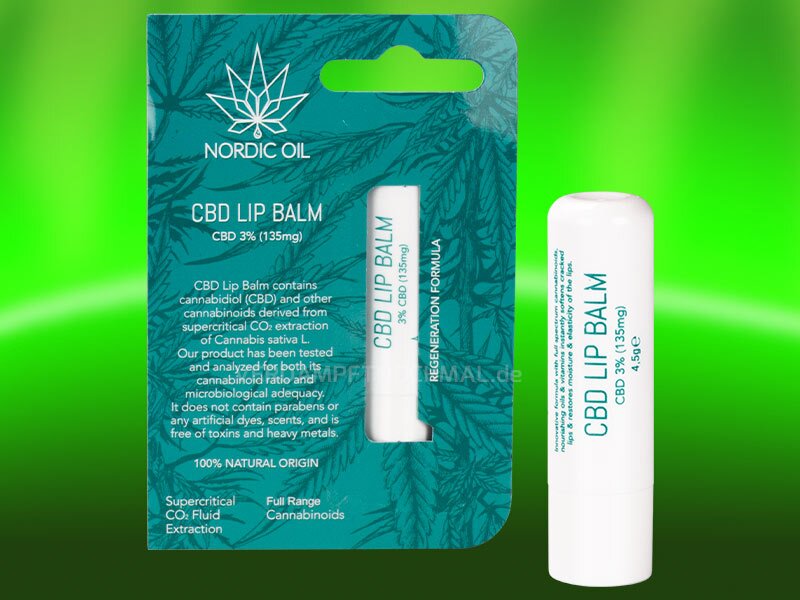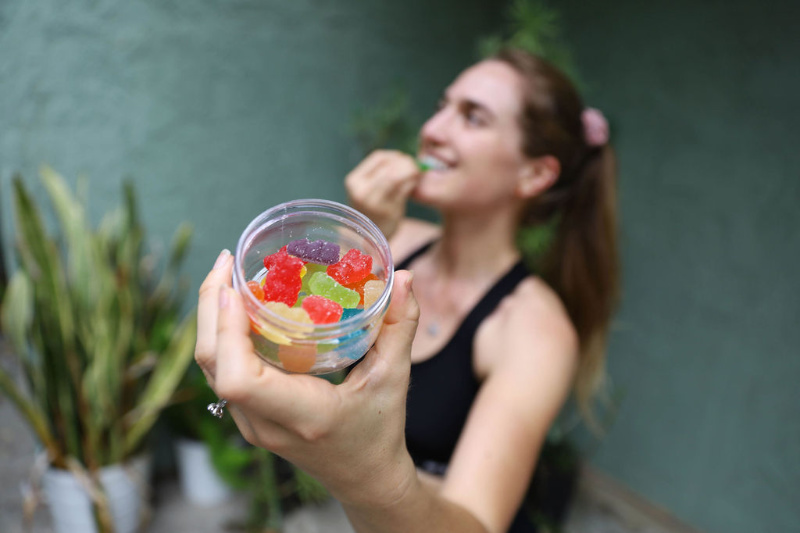
CO2 extracted CBD oil has a number of benefits, compared to traditional CBD oil. It's safer, more efficient and quicker. It is also more cost-effective. It is the preferred method of extracting CBD oil, as it can produce better results. This method does have its drawbacks. This article discusses some of them. Before you buy, weigh the benefits and drawbacks of CO2 extraction.
Cost-effective
CO2 extraction is by far the most cost-effective way to extract CBD oil. This method produces the purest and most pure oil, with no harmful by-products. The downside is that CO2 extraction can be quite costly. A CO2 extraction unit can run as high as PS103,000 ($135,000).
The CO2 extracting process uses high pressure carbon dioxide to the plant material. This allows for the extraction of CBD and other compounds. Some labs use liquid CO2 while other laboratories use gas CO2. The CO2 is then added to a chamber containing plant material at high temperatures and pressures. CO2 then acts as a solvent, pulling the plant materials apart while carrying the beneficial compounds to the next step.

Safer
Supercritical CO2 extraction is a process for extracting CBD from cannabis. To extract active compounds from cannabis plants, the technique uses a sealed chamber. It creates low temperatures and high pressure. This process is flexible and can produce high-quality CO2 oil. Here are some of these benefits of CO2 extracted. It is also environmentally friendly. You can create products that are highly customized to your requirements with safer Co2 extraction.
CO2 is a natural renewable solvent. CO2 isn't like other solvents made from petroleum. It is also the easiest way to extract CBD. It does not produce any petroleum-based byproducts nor cause explosions, so it is totally safe to use.
Cost-efficient
The cost-effective CO2 extraction method is a great way to extract CBD oil. While this is quicker and more efficient than steam distillation but it does come with a lot of risk. As such, most labs opt for CO2 extraction. The process involves a mixture of plant material with a solvent to extract the CBD oil. The most common natural solvents are alcohol and natural plant oils. These are more effective in dissolving complex substances than synthetic solvents. However, they may also produce a lower-quality CBD oil.
Another benefit of CO2 extracting is its inability to produce additional heat or toxic chemicals. It is also more expensive than other methods. A CO2 extraction unit can cost between $135,000 and $150,000. Hydrocarbon solvents can be cheaper, but they can pose a danger if not used properly and can leave toxic solvent residues in the final product.

Faster
There are several advantages of Co2 extracted CBD oil. It is faster, clean, and safer than conventional solvent extraction methods. This method can also be used to fine-tune the extraction process. It is possible to control the CO2's pressure and temperature. The CO2 is absorbed by the plant matter and forms a solution containing cannabinoids, phytones, and other plant-based substances. The solution can be separated from the liquid carbon dioxide by using a separator. You can leave the wax/oil extract out of the extraction to allow CO2 to escape.
Another benefit of CO2 extraction? A shorter shelf time. This is important for products made from hemp extract. The hemp flavor is preserved by this method, which does not include any chemicals. Plus, the residual CO2 is completely recyclable.
FAQ
Which states consume the most CBD?
California, Colorado and Oregon are the top three states. These states have large numbers, high incomes, and low rates of unemployment. They also have a higher number of hemp farms compared to other states.
California leads because its economy relies heavily on agriculture. It is home to a large amount of fruits and vegetables. It makes sense, as cannabis is also derived from hemp.
Colorado and Oregon follow close behind because they both produce marijuana for medical purposes. California is the only state that allows recreational marijuana use, but these two states are not.
Other high-ranking states include Washington, New York and Florida.
Is the CBD industry saturated?
CBD industry has a growing rate of 25% annually. This growth is expected not to stop for at least five more years. The industry is forecast to grow from $2 Billion to $5 Billion by 2020.
Canndoc Ltd and GW Pharmaceuticals are the dominant players in the CBD market. Both companies have a focus on creating pharmaceutical-grade products. They have not been very effective so far. Both are struggling to get traction on market.
Cannabidiol is an extract of cannabis with less than 0.3% CBD. It does not have any psychoactive properties. It can be used to treat epilepsy or other medical conditions. It can also be used as a dietary supplement.
There are many types of CBD products. Some are made using whole plant extracts, while others use isolated cannabinoids such as CBD.
These products share one common feature: they all contain low levels of THC.
These products are legal under US federal law. You still need to comply with local laws when you sell CBD products. It is important to check the regulations in your state for CBD products.
In addition, there are several states where CBD products are illegal. These include California and Colorado, Florida, Mississippi. Missouri, New York. North Carolina. Ohio. Oklahoma. Oregon. Rhode Island. South Dakota. Texas. Utah. Virginia. Washington.
If you live in one of these states, then you will probably want to avoid making CBD products.
What are the best ways to use CBD?
CBD can also be used to treat anxiety. You can also use CBD to treat anxiety, pain, insomnia, epilepsy and inflammation.
CBD can be taken in many ways. CBD is available in many forms.
CBD has many health benefits. It has been shown that CBD can help with anxiety, chronic pain, PTSD, and many other ailments.
How can CBD products successfully be marketed by companies in compliance with regulations?
The FDA does NOT regulate hemp as an agriculture commodity. The FDA regulates cannabis derivatives (e.g. marijuana) under the Controlled Substances Act. CBD has yet to be subject to specific regulations.
CBD is legal in 29 states. Federal law, however, still considers it illegal. This uncertainty is a problem for CBD-product sellers.
The FDA also sets strict guidelines about how CBD products are promoted. The FDA requires that all CBD products clearly disclose their THC content. Companies cannot claim CBD is effective in treating certain medical conditions without supporting evidence.
In addition, the FDA requires manufacturers to submit detailed information regarding manufacturing practices and quality control measures. To demonstrate safety and efficacy, the FDA requires companies to perform clinical trials.
These are important considerations for companies when creating their marketing strategies.
Which countries produce CBD of the highest quality?
The United States produces most CBD products.
But Canada, Australia, New Zealand, and Israel are also producing high-quality CBD products.
Statistics
- CBD seems unlikely to directly influence sleep in healthy humans [115] (and maybe “sleep-promoting” in those with certain comorbid conditions) (ncbi.nlm.nih.gov)
- HR −16 mmHg; 95% CI −26, −6; I2 = 92%) (ncbi.nlm.nih.gov)
- however, one study also found that these effects were virtually abolished when the original media (a nutrient broth agar) was replaced with one containing 5% blood (increasing the minimum concentration to ~160 μM CBD) [179]. (ncbi.nlm.nih.gov)
- While the primary injury may not be treatable, interventions that attenuate secondary sequelae are likely to be of benefit [203].Only one study (ncbi.nlm.nih.gov)
- As a substance that was federally illegal before the passage of the 2018 Farm Bill, hemp-derived cannabinoids with no more than 0.3% THC still face a regulatory grey area. (forbes.com)
External Links
How To
What are the major issues facing the CBD industry in general?
The market for CBD is growing at an astonishing rate. However, this market is still full of challenges for businesses that want to expand. These include low consumer awareness, high entry costs, limited capital access, regulatory uncertainty, and lack of consumer awareness.
Many people are not aware of what CBD is, or how it functions. This means they are not able to make informed choices about whether or no to purchase CBD products.
CBD companies are heavily dependent on word-of–mouth marketing. This is costly, as it requires advertising and the hiring of staff to promote their brand.
The high production costs are another issue that new entrants to the CBD industry face. The raw materials needed to create CBD products are quite expensive. For example, hemp needs to be grown in specific climates and soil types before it can be processed into CBD oil.
To grow enough hemp for CBD oil production, it costs approximately $1,000 per acre. As a result, many small farmers cannot afford to start.
Access to capital is another challenge for new entrants in the CBD market. Due to the stigma surrounding the industry, banks discourage many people who wish to start businesses.
Last but not least, there is regulatory uncertainty regarding the sale and distribution of CBD products. There are currently not clear guidelines as to how CBD products should marketing.
Despite some states having passed laws restricting the sale CBD products, this is not yet a national policy.
Only two states, Nevada and Maine, have yet to legalize recreational marijuana.
Massachusetts and Michigan are however considering similar measures.
These changes could increase competition among CBD manufacturers.
These factors lead to many entrepreneurs choosing to work from their home instead of starting a physical company.